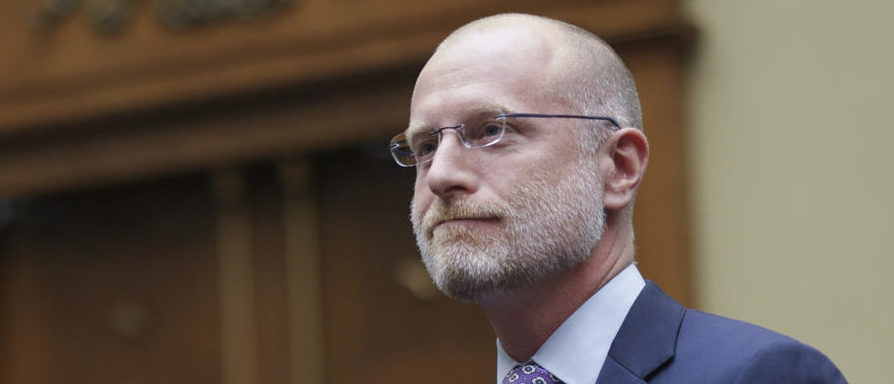President Joe Biden’s administration has urged the Federal Communications Commission (FCC) to enact new rules aimed at tackling “digital discrimination” that FCC Commissioner Brendan Carr says would radically expand its regulatory scope.
The rules, which the Democrat-controlled FCC will vote on on Nov. 15, seek to grant the commission expanded authority to oversee nearly all facets of internet service using the principle of equity, Carr told the Daily Caller News Foundation. These regulations draw their authority from a section of Biden’s 2021 Infrastructure Investment and Jobs Act, which guarantees “equal access” to broadband internet service, and carry the potential for financial penalties for “discrimination” related to providing internet service. (RELATED: FCC Commissioner Brendan Carr Says Net Neutrality Debate Is ‘All Over,’ Real Threat Is Big Tech)
“There’s no element or component of internet service that will not, for the very first time, be subject to FCC regulation,” Carr told the DCNF. “And it does so through this lens of equity, which is a broad and sort of nearly unlimited sort of phrase in terms of the discretion the government would have.”
President Biden has called on the FCC to adopt new rules of breathtaking scope.
Those rules would give the federal government a roving mandate to micromanage nearly every aspect of how the Internet functions—from how ISPs allocate capital and where they build, to the services… pic.twitter.com/X8eyxM3Qy0
— Brendan Carr (@BrendanCarrFCC) November 7, 2023
The main objective of the rules is to prevent “digital discrimination of access” as expressed in section 60506 of the infrastructure bill. The rules would also empower the FCC to conduct investigations pertaining to these forms of discrimination. Enforcement of the rules could lead to unspecified fines.
“To implement section 60506 … the Commission would adopt rules to establish a framework to facilitate equal access to broadband internet access service by preventing digital discrimination of access to that service based on income level, race, ethnicity, color, religion and national origin,” Carr wrote in a statement opposing the rules on Monday.
The rules would enable the government to regulate “how [internet service providers (ISPs)] allocate capital and where they build, to the services that consumers can purchase; from the profits that ISPs can realize and how they market and advertise services, to the discounts and promotions that consumers can receive,” Carr added. “Talk about central planning.”
Moreover, if the vote passes, the FCC will almost certainly take advantage of the new power, Carr told the DCNF.
“We’re seizing all this control and the government does not have a track record of seizing control and then sitting on it and not finding some way to exercise it,” he said.
The rules could also lead to subjective enforcement because of their vagueness, Carr explained.
“If you build broadband anywhere, you’re potentially liable for having not built it everywhere,” he told the DCNF. “If you don’t build broadband anywhere, you’re potentially liable for not doing that. And so it’s a total Kafkaesque regime. It leaves practically unfettered power in the hands of the administrative state with no clarity or path to compliance for the private sector.”
Moreover, there is “no ceiling on the level of potential fines,” Carr wrote. He told the DCNF it could therefore lead to millions of dollars in penalties for noncompliance.
Carr also referenced a House Judiciary Committee report published on Monday which highlighted instances of internet censorship by the federal government, drawing a link between this censorship and the proposed rules.
“This particular decision is part of a broader effort by the administration to exercise control over the internet,” Carr told the DCNF. “It’s an adoption of the view that the government should be sitting over the shoulders peering in and second-guessing every single decision that’s made about the internet.”
The FCC also made a substantial move toward reestablishing net neutrality in October by voting in favor of a notice of proposed rulemaking. Net neutrality rules mandate that ISPs provide equal access to all websites and content providers at the same rates and speeds, irrespective of their size or content.
The White House and FCC did not respond to the DCNF’s requests for comment.
All content created by the Daily Caller News Foundation, an independent and nonpartisan newswire service, is available without charge to any legitimate news publisher that can provide a large audience. All republished articles must include our logo, our reporter’s byline and their DCNF affiliation. For any questions about our guidelines or partnering with us, please contact licensing@dailycallernewsfoundation.org.


